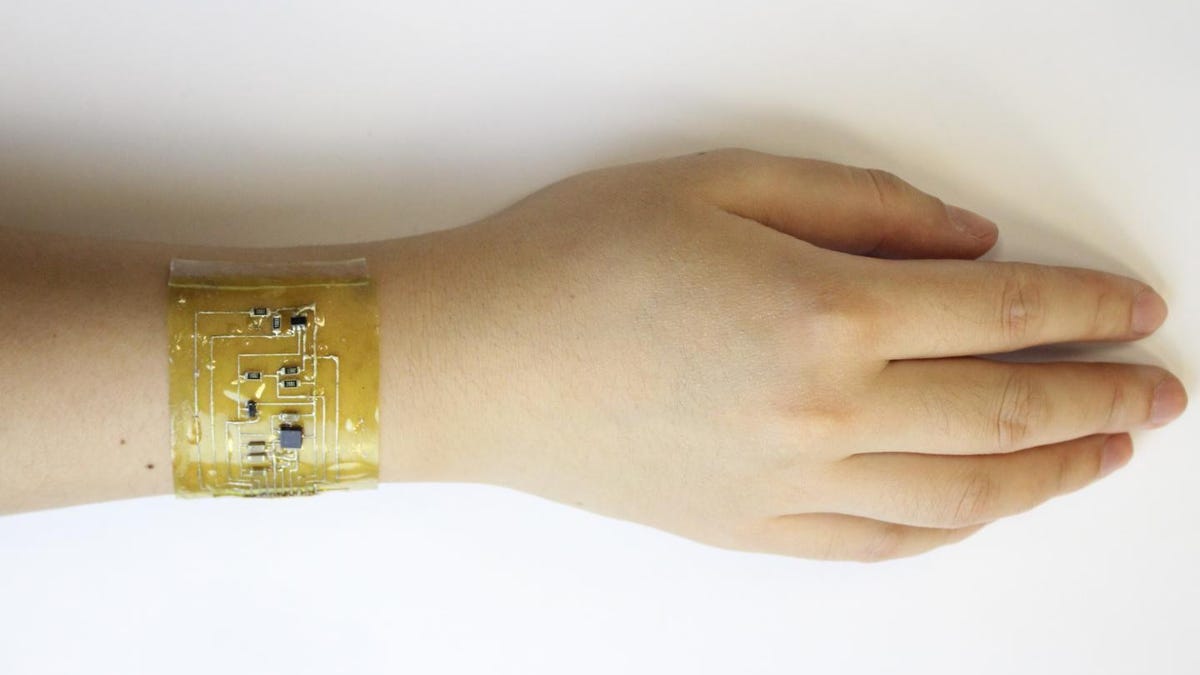'Electronic skin' stretches, heals itself (and makes me dream of a cyborg future)
Can I get a full body suit of this stuff?
I think I'm finally ready to dabble in becoming a machine-human hybrid, and a new "electronic skin" developed at the University of Colorado Boulder seems like the perfect, non-invasive way to live out this dream. Like being a Borg on Star Trek, but not so permanent and not so creepy.
The device is a circuit board, but it's not like those rigid boards you're used to seeing. It's stretchable, fully recyclable and, best of all, sticks to human skin, adding a layer of electronics to almost any body part. The team published a paper on its work in the journal Science Advances this month.
"Smart watches are functionally nice, but they're always a big chunk of metal on a band," said study co-author Wei Zhang in a CU Boulder statement. "If we want a truly wearable device, ideally it will be a thin film that can comfortably fit onto your body."
The new e-skin has been in the works for years. It's made with liquid metal wires placed between thin layers of polyimine, a material that gives the device flexibility. It also has remarkable self-healing properties. After being cut, it can knit back together within minutes. "It's similar to skin healing, but we're talking about covalent chemical bonds here," said Zhang.
This new artificial skin is part of an expanding frontier in electronics. We've seen a jellyfish-inspired, self-healing electronic skin, one that's designed to bring a sense of touch to prosthetics and even a 3D printer that can place electronics directly onto human skin.
CU Boulder said the electronic skin could first be harnessed to handle the functions of fitness devices by monitoring heart rate and movement. But that's just the beginning for its potential.
The university evoked a vision of robo-Arnold Schwarzenegger in the Terminator movies peeling off skin, but we don't need to fight the future just yet. "Our research is kind of going in that direction," Zhang said, "but we still have a long way to go."


